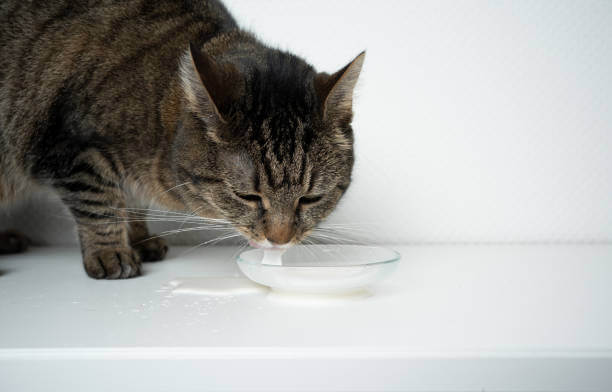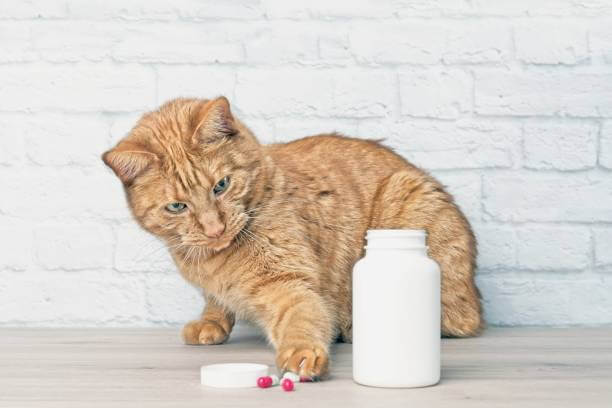
Find out whether can cats eat melatonin and what the potential risks are. We’ll explore the benefits and discuss if it’s safe for your pet feline. As responsible pet owners, we always strive to keep our feline friends healthy and happy. With the popularity of melatonin as a sleep aid for humans, you may find yourself wondering if it is safe to give melatonin to your cat. In this article, we will delve into the topic of cats and melatonin, exploring its potential effects and safety considerations. While melatonin can be beneficial for some species, it’s essential to understand that cats have unique physiological differences that may impact how they metabolize certain substances.
Understanding Can Cats Eat Melatonin
Before we dive into whether or not cats can consume melatonin, let’s take a moment to understand what melatonin is and its role in the body. Cats eat melatonin is a hormone produced naturally by the pineal gland in both humans and animals, including cats. It plays a vital role in regulating the sleep-wake cycle (circadian rhythm) by helping signal the body when it’s time to rest.
In humans, melatonin supplements are commonly used to address sleep disorders or jet lag due to their ability to promote relaxation and regulate sleep patterns. However, when it comes to our feline companions, things are slightly different.
The Unique Physiology of Cats
Cats Eat Melatonin have specific metabolic differences compared to humans and other animals. Their liver function and enzymatic activity vary significantly from ours, which can affect how they process certain substances. It’s crucial to approach any potential dietary changes or supplements with caution since what works for us may not necessarily be safe for our furry friends.
Potential Risks of Melatonin for Cats
While there is limited scientific research specifically addressing the effects of melatonin on cats eat melatonin, there are several factors that raise concerns about its safety:
1. Lack of Dosage Guidelines
One major challenge with giving melatonin to cats is establishing appropriate dosage guidelines. Unlike some medications specifically formulated for pets, melatonin supplements are primarily manufactured for human use. As a result, it can be difficult to determine the correct dosage for cats, increasing the risk of over- or under-dosing.
2. Adverse Reactions
Melatonin supplements intended for humans often contain additional inactive ingredients that may not be safe for cats. These additives could potentially cause adverse reactions or even toxicity in felines.
3. Interactions with Medications
If your cat is already taking medications, introducing melatonin as a supplement may interfere with their effectiveness. It’s crucial to consult with your veterinarian before giving any new substances to your pet to avoid potential drug interactions and adverse effects.
While these risks indicate caution when considering melatonin as a supplement for cats, it’s important to remember that every cat is unique, and individual responses may vary.
Alternatives for Promoting Restful Sleep in Cats

If you’re concerned about your cat’s sleep patterns or overall well-being, there are alternative methods you can explore that focus on creating an optimal sleep environment:
1. Consistent Routine
Establishing a regular routine can help regulate your cat’s sleep cycle naturally. Try to keep feeding times consistent and create a quiet and comfortable sleeping area where they feel safe and secure.
2. Enrichment and Stimulation
Engaging your cat in stimulating activities during the day can help promote better sleep at night. Interactive toys, scratching posts, and play sessions can provide mental and physical stimulation that contributes to a more restful slumber.
3. Environmental Considerations
Ensuring your cat has a peaceful environment conducive to sleep is essential. Minimize noise disruptions, provide cozy bedding options, and consider using Feli way diffusers or calming sprays designed specifically for cats.
By focusing on these alternatives rather than resorting to melatonin supplementation, you can prioritize your cat’s well-being while still addressing any sleep-related concerns.
What Is Melatonin?

Melatonin is a hormone produced naturally by the pineal gland in both humans and animals, including cats. It plays a vital role in regulating the sleep-wake cycle (circadian rhythm) by helping signal the body when it’s time to rest. In humans, melatonin supplements are commonly used to address sleep disorders or jet lag due to their ability to promote relaxation and regulate sleep patterns.
However, when it comes to our feline companions, things are slightly different as cats have specific metabolic differences compared to humans and other animals. Their liver function and enzymatic activity vary significantly from ours, which can affect how they process certain substances. It’s crucial to approach any potential dietary changes or supplements with caution since what works for us may not necessarily be safe for our furry friends.
How Can Cats Get Melatonin?
Melatonin is available as a supplement in both oral and transdermal forms, such as tablets or sprays. While there are some melatonin supplements specifically formulated cats eat melatonin, it’s important to note that their effectiveness has not been extensively studied or confirmed by research. Additionally, the lack of dosage guidelines for cats further complicates matters when considering melatonin supplementation as a potential solution.
What Are the Alternatives?
If you’re concerned about your cat’s sleep patterns or overall well-being, there are alternative methods you can explore to promote restful sleep: Establishing a regular routine, providing ample mental and physical stimulation, creating a peaceful sleep environment, and using calming aids such as Feli way diffusers or sprays. By focusing on these methods rather than resorting to melatonin supplementation, you can prioritize your cat’s well-being while still addressing any sleep-related concerns.
Does Melatonin Have Health Benefits for Cats?
Melatonin may offer certain health benefits for cats, but the research is still limited. It has been shown to help reduce inflammation and support immune system function in some studies. Additionally, melatonin may have calming effects that can help reduce stress levels in cats eat melatonin. However, as with any supplement, it’s important to consult with your veterinarian before introducing anything new into their diet. They can help assess your cat’s individual needs and provide guidance on appropriate dosage levels to minimize the risk of adverse effects.
FAQS
Q: Is Melatonin Safe for Cats?
A: The safety of melatonin supplementation in cats is still largely unknown due to the lack of scientific research. Before giving your cat any new substances, it’s important to consult with your veterinarian to assess their individual needs and identify potential risks.
Q: Are There Natural Sources of Melatonin for Cats?
A: Yes, cats naturally produce melatonin in their bodies. However, occasionally supplementing with additional melatonin may help if your cat is suffering from sleep disturbances or other health issues. Again, it’s important to consult with your vet before introducing any new substances to your pet’s diet.
Q:What Are the Alternatives to Melatonin for Promoting Restful Sleep in Cats?
A: Establishing a regular routine, providing ample mental and physical stimulation, creating a peaceful sleep environment, and using calming aids such as Feliway diffusers or sprays are all effective alternatives to melatonin supplementation.
Q: Are There Any Risks to Giving My Cat Melatonin?
A: As with any supplement, there are potential risks associated with melatonin supplementation in cats. These include drug interactions and adverse effects if given in too high a dose. It’s important to consult with your veterinarian before giving any new substances to your pet to avoid these potential problems.
Conclusion
The Blue Point Siamese Cat is a beautiful, loyal, and affectionate breed that makes an excellent pet. Though melatonin supplementation may provide certain health benefits for cats, it’s important to consult with your veterinarian before introducing any new substances into their diet. Natural alternatives such as establishing a consistent routine, providing mental and physical stimulation, creating a peaceful sleep environment,
While melatonin can be a beneficial supplement for cats in certain situations, it’s important to discuss any potential dietary changes with your veterinarian first. There are also alternative methods, such as establishing a regular routine and providing ample mental and physical stimulation, that can help promote restful sleep without resorting to supplementation.
